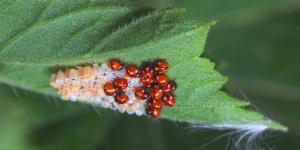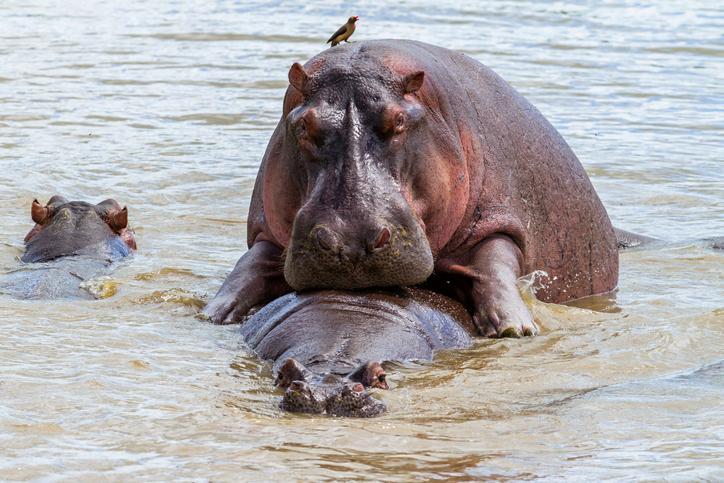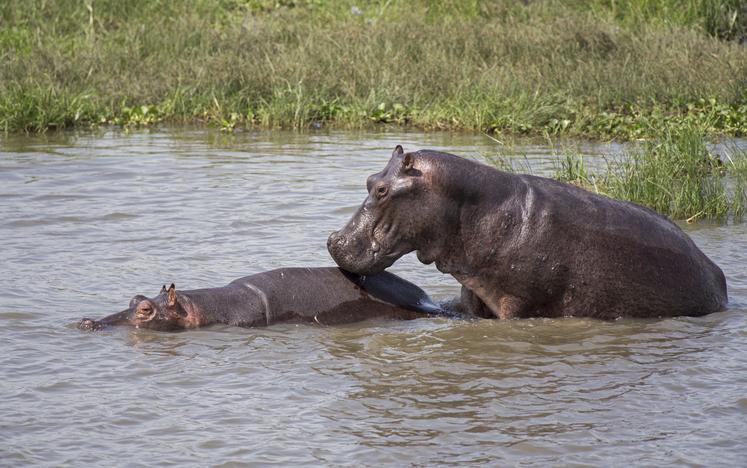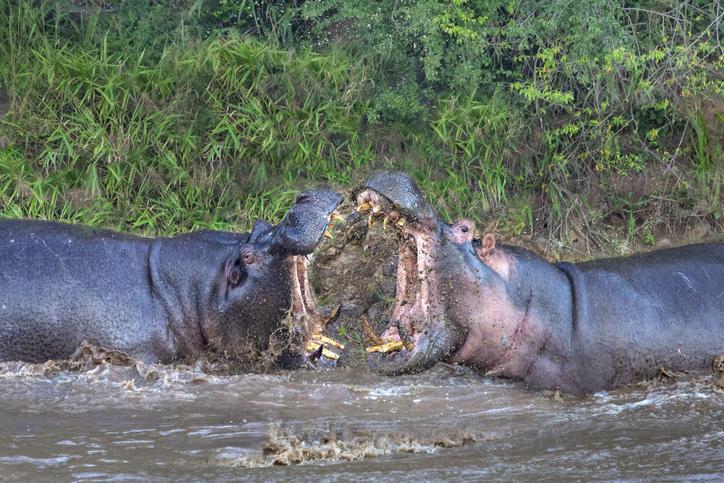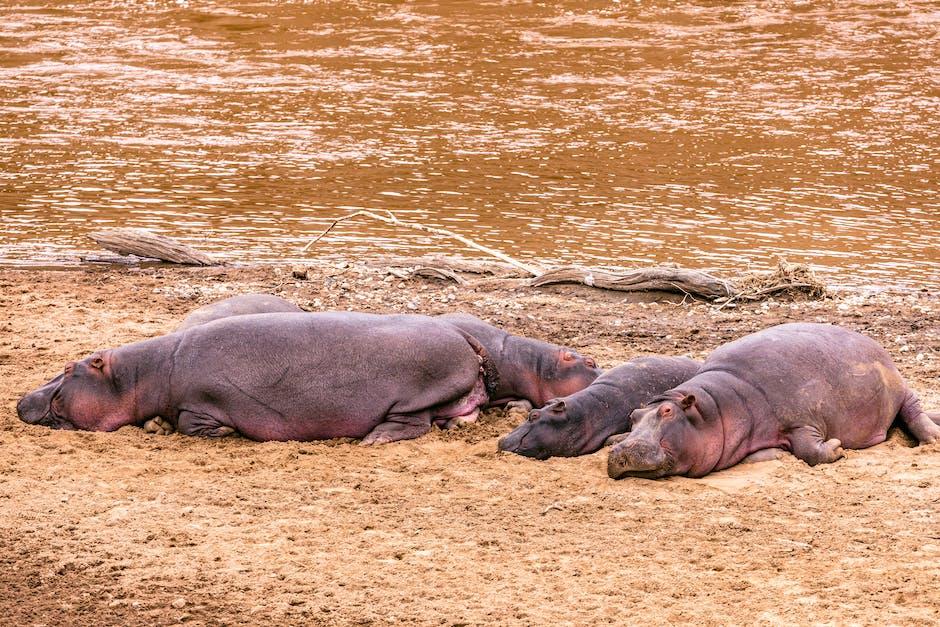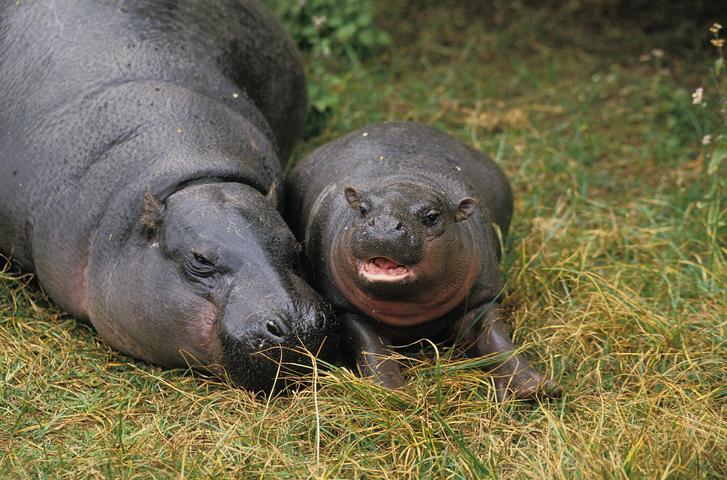How Do Hippos Reproduce?

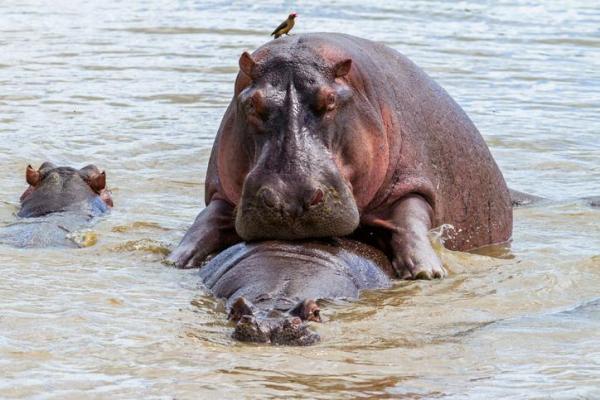
Hippopotamuses, also known as hippos, are large, semiaquatic mammals native to sub-Saharan Africa. They are the third-largest land animals on Earth, after elephants and white rhinoceroses, and can weigh up to 3,200 kg (7,000 lb). Hippos are herbivores and spend most of their days grazing in grasslands or shallow water. They are known for their aggressive territorial behavior and their powerful jaws, which can crush a watermelon with ease.
In the following sections, we will discuss the reproductive biology of hippos in detail. We will cover topics such as mating behavior, gestation, and parental care.
What are hippopotamuses or hippos?
There are two extant species of hippopotamuses: the common hippopotamus (Hippopotamus amphibius) and the pygmy hippopotamus (Choeropsis liberiensis). The common hippopotamus is the larger of the two species and is found in sub-Saharan Africa. The pygmy hippopotamus is much smaller and is found in West Africa.
Hippos are large, stocky mammals with a semi-aquatic lifestyle. They have thick, hairless skin that is gray or black in color. Hippos have powerful jaws and teeth that are adapted for grazing on plants. They also have webbed feet that help them to swim.
Hippos are sexually dimorphic, with males being larger than females. Males can weigh up to 3,200 kg (7,000 lb), while females can weigh up to 2,000 kg (4,400 lb). Hippos are also very social animals and live in groups called pods. Pods can range in size from a few individuals to several hundred.
Hippos are found in a variety of habitats, including rivers, lakes, and swamps. They spend most of their days grazing on plants in the water or on land. Hippos are nocturnal animals and are most active at night. They are also very territorial and will defend their territory from other hippos.
Hippos are herbivores and eat a variety of plants, including grasses, sedges, and fruits. They can eat up to 150 kg (330 lb) of food per day. Hippos are also very efficient at digesting food and can get by on relatively low quality food.
What is the mating ritual of hippos?
Hippopotamus mating rituals are a captivating spectacle, especially during the breeding season that typically unfolds between May and July.
As this season unfolds, male hippos undergo a transformation, becoming notably aggressive and territorial. The stakes are high as they vie for access to females, with these challenges occasionally escalating to serious injuries or even fatal outcomes.
In the intricate social structure of hippopotamus herds, a distinct segregation by sex is evident. On one side, there are cohesive groups comprising females, their young offspring, and subadults. These groups provide safety in numbers and a nurturing environment for the young.
On the other side, there are groups of single males. Within these groups of single males, a well-defined dominance hierarchy takes shape. Only one male reigns supreme, earning the right to freely reproduce with the females. This dominant male is known as the territorial bull.
Submissive males, however, may challenge the established order, resulting in confrontations characterized by displays of power such as opening mouths, exhibiting their formidable canine teeth, and engaging in non-lethal head-jawing. These interactions determine the hierarchy and establish the next breeding male when the current territorial bull's reign ends.
The establishment of dominance holds paramount significance for male hippos during the mating season. The dominant male enjoys exclusive access to all females in the herd, while subordinate males must bide their time or risk facing aggression. Dominant males leverage their size and strength to intimidate rivals, employing tactics like blocking access to females or chasing away competitors in their pursuit of reproductive success.
When do hippos reproduce?
Hippos typically reproduce during the wet season, which occurs between May and July in most parts of Africa. The wet season provides an abundance of food and water, which are essential for raising a calf. Additionally, the warmer temperatures of the wet season help to stimulate breeding.
Delve deeper into the world of hippos and uncover the surprising reasons behind their dangerous reputation in our other article.

How do hippos attract females?
To court females, male hippos employ an array of behaviors, each designed to attract and impress potential mates. Tail wagging involves the rhythmic movement of their tails, dispersing urine and feces into the air. The resulting scent serves as a pheromone, a chemical signal that carries information about the male's identity, health, and reproductive status. Females are drawn to this scent, increasing their chances of encountering a suitable mate.
Gaping, another courtship behavior, sees males opening their mouths wide, showcasing their imposing canine teeth. This display serves a dual purpose: intimidation and dominance assertion. By exposing their powerful jaws, males warn off rivals and reinforce their position in the hierarchy, making them more attractive to females.
Additionally, snorting is employed as a form of communication among males and with females, serving various purposes such as warning off rivals, attracting females, or asserting presence. These vocalizations provide valuable information about the male's intentions and whereabouts, helping to maintain order and regulate interactions within the herd.
How long do hippos mate?
Hippos typically mate for a few seconds. The female hippopotamus is receptive to mating for only a few days each month, and the male hippopotamus must be able to mount the female in the water in order to mate. Copulation is brief but successful, and the female hippopotamus will become pregnant.
How often does a hippo reproduce?
Hippos typically reproduce every other year. This is due to several factors, including the long gestation period, the energy demands of raising a calf, and the need for the female to recover from giving birth.

What is gestation period of hippos?
The gestation period for hippos is about eight months. This means that the female hippopotamus will be pregnant for about 243 days before giving birth. The exact length of the gestation period can vary depending on the individual hippopotamus, but it is typically between 237 and 252 days.
When a female hippopotamus is nearing the end of her pregnancy, she will leave the herd and find a secluded spot to give birth. This is usually in a shallow area of water, close to vegetation. The female hippopotamus will build a nest by trampling down reeds or grasses.
How long does it take for a hippo to give birth?
The birth process is relatively quick and easy for hippos. The calf is born headfirst, and the mother helps to push it out of the water. The newborn calf is covered in a thick layer of mucus, which is thought to protect it from the cold water.
How are hippos born?
Hippo calves are born very large and well-developed. They weigh between 45 and 60 kilograms (100 to 130 pounds) at birth.
Calves are able to swim within a few hours of birth, and they are very strong swimmers. They are also able to hold their breath for up to five minutes, which allows them to stay submerged while their mothers are grazing on land.
Calves are very vulnerable to predators, such as lions and crocodiles. They stay close to their mothers for protection, and the mothers will fiercely defend their young. Calves are nursed by their mothers for about six months, and they are fully grown by the time they are three years old.
Is the hippopotamus oviparous or viviparous?
Hippopotamus are viviparous animals. This means that they give birth to live young, rather than laying eggs. Unravel the mysteries of oviparity and explore the adaptations of egg-laying animals in our other article.

Do hippos make good parents?
Hippos exhibit remarkable parental care, with both male and female parents playing crucial roles in raising and protecting their young.
Despite their aggressive reputation, male hippos exhibit surprisingly nurturing behavior towards their calves. They actively defend their offspring from predators, often engaging in aggressive displays or mock charges to ward off threats. Additionally, male hippos may teach their calves essential survival skills, such as swimming and diving.
Female hippos, on the other hand, bear the primary responsibility for nurturing and providing care for their calves. They nurse their young for up to six months, providing them with essential nutrients for growth and development. Female hippos also teach their calves important social skills and behaviors, helping them integrate into the herd and establish their place within the hippopotamus social hierarchy.
Hippopotamus parenting behaviors exemplify the deep connections that can exist between parents and their offspring, even in the animal kingdom. The roles played by both male and female hippos in raising and protecting their calves demonstrate the remarkable adaptability and social intelligence of these creatures.
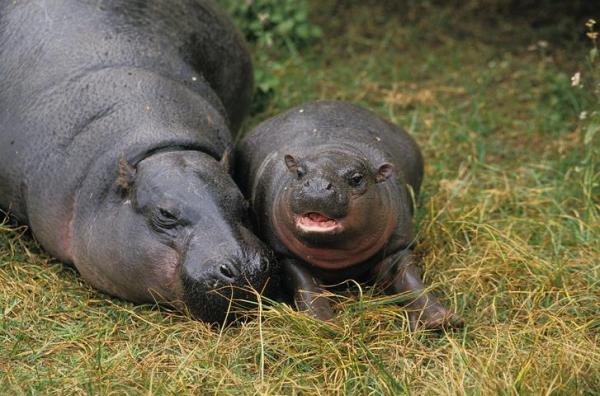
If you want to read similar articles to How Do Hippos Reproduce?, we recommend you visit our Facts about the animal kingdom category.
Sadler, P. (2020). Sexual Dimorphism in the Common Hippopotamus (Hippopotamus amphibius). Doctoral dissertation, Bangor University (United Kingdom).
- Common Hippopotamus ( Hippopotamus amphibius ). The IUCN SSC Hippo Specialist Group .
- Pygmy Hippopotamus (Choeropsis liberiensis). The IUCN SSC Hippo Specialist Group .




